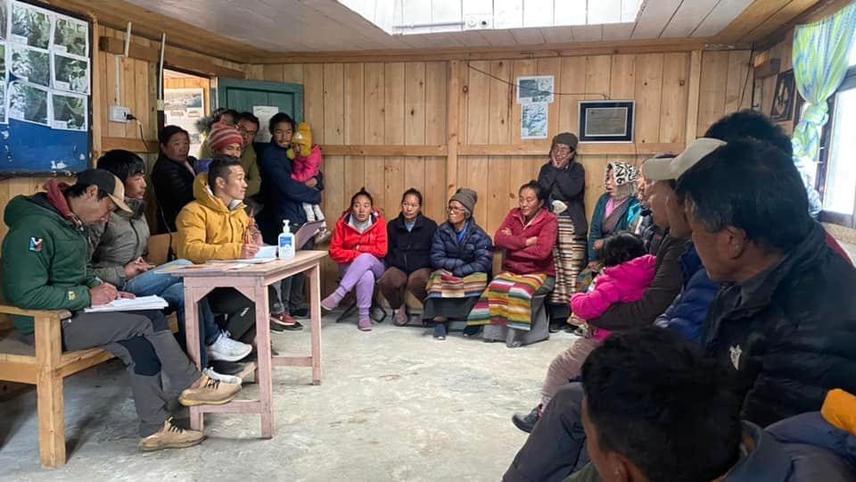Article featuring the project.
Chungla Sherpa
This project aims to address the pressing issue of human-snow leopard conflict, which has arisen due to expansion of human footprint, habitat loss, and environmental changes. To effectively tackle this problem, a multidisciplinary approach is crucial, incorporating anthropological, evolutionary, behavioral, and ecological perspectives. The project focuses on the Ghunsa Valley in Nepal's Eastern Himalaya, working closely with indigenous communities who want to coexist with the Snow Leopard. The active involvement of these communities is essential, as the project aims to develop a coexistence framework that benefits both humans and snow leopards in this shared landscape. Through the study of human-wildlife interactions and community engagement, the project seeks to create sustainable solutions that benefit both snow leopards and human communities. The insights gained may serve as a model for resolving similar conflicts in other sacred landscapes worldwide. Despite the introduction of community-based insurance schemes, snow leopard predation on livestock has caused economic losses in the Ghunsa Valley. This project recognizes the urgency of understanding the complex dynamics of human-snow leopard interactions, which have received limited scholarly attention. The project's objectives include bridging the knowledge gap on human-snow leopard interactions, considering socio-economic and cultural contexts to gain deeper insights into these dynamics, and emphasizing the importance of reconciling human interests with wildlife conservation.

© Nupu Sherpa.
Our project has three primary objectives. Firstly, we aim to enhance coexistence by improving local livelihoods through diversified initiatives like eco-tourism training. This not only creates economic opportunities but also reduces reliance on natural resources, potentially increasing tolerance towards snow leopards. Secondly, we seek to assess the impact of conservation education on local schools, herders, and farmers. By enhancing knowledge and fostering positive attitudes towards snow leopards, we hope to inspire behavioral changes conducive to coexistence. Thirdly, we'll investigate the perceptions of local communities regarding insurance compensation for snow leopard-related losses. We'll explore ways to mitigate negative interactions with snow leopards while ensuring fair compensation. Our research combines qualitative and quantitative methods, including surveys and interviews, using control groups and experimental sets to ensure robust findings.
Expected Outcomes:
Our project aims to enhance coexistence between local communities and snow leopards through collaboration, awareness, and the exploration of alternative livelihood options, with a focus on eco-tourism. This will benefit snow leopard conservation and the Himalayan ecosystem. Empowering women and indigenous communities in eco-tourism initiatives will have broad socio-economic impacts, underscoring the vital connection between human well-being and wildlife conservation. Ultimately, our project will enhance snow leopard survival and community well-being.
Header: © Nupu Sherpa.